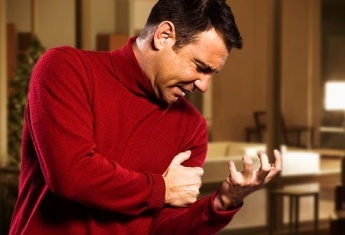Cardiovascular diseases, including heart attack, are the leading causes of death today. You experience severe chest pain during a heart attack – the pain is due to the interrupted blood supply to the heart (myocardial ischemia). When your heart does not receive enough blood, it causes damage to the tissues of the heart. The tissues may die as well and cause serious complications. You experience certain symptoms before and during a heart attack, and one of the most common one is pain in the left arm.

Why Do People Having a Heart Attack Often Feel Pain in Their Left Arm?
The signs of a heart attack may vary from person to person. The pain in the left arm is a characteristic symptom, but you can have a heart attack even if you do not experience much pain in the arm. When the pain is present, it usually radiates from the nape, to arm and then spreads to the back.
The pain you experience on the left side is mainly because the nervous system becomes confused during a cardiac event. Anatomically, the heart is in the center of your chest but is slightly towards the left side, which is why you experience heart rates and palpitations more on the left side. The left arm pain is due to the confusion of the neuron messenger system – this happens because the nerves that supple the left arm and the heart come from the same spinal segment. This is also the reason why the pain often travels to the nape and back.
It is possible to have a heart attack even in the absence of any left arm pain. In fact, women are more likely to experience the left arm pain as compared to men who only experience sudden, severe chest pain. However, you should not ignore a left arm pain and seek immediate medical help because early detection can really help to prevent serious complications.
Other Warning Signs of Heart Attack
Why do people having a heart attack often feel pain in their left arm? You already know the reason, but you should also have some information about other warning signs of heart attack.
1. Chest Pressure, Pain, and Discomfort
Most people who have heart attacks also experience some chest discomfort or pain. While chest pain and discomfort is certainly a common sign of a heart attack, it is not always present in every heart attack. Some people do not experience chest pain at all, but do experience chest tightness. Sometimes, the chest discomfort resolves in a few minutes but come again after several hours or even a day later. If that happens, you should call 911 immediately, especially if you also have some pain in your upper abdomen, back, shoulder, teeth, or neck. Women sometimes experience no pain in the chest but the pressure is in other parts of the body, including the upper back.
2. Excessive Sweating
If you have some sort of chest discomfort with excessive sweating, this may be an early sign of heart problems. Your heart needs to work more to pump blood through blocked arteries and this makes your body to sweat more to keep your body temperature low. You should see your doctor if you experience clammy skin or cold sweats. Women with heart problems are more likely to experience night sweats, a symptom usually associated with menopause. Do not ignore it if you cannot sleep due to excessive sweating.
3. Fatigue
Most people do not know that fatigue can also be an early sign of heart problems. Your heart needs to work harder to pump blood and this causes exhaustion. Shortness of breath and fatigue are more commonly experienced signs by women as compared to men. It sometimes begins months before an attack. You should see your doctor if you feel exhausted or tired for no reason.
4. Shortness of Breath
The role of your heart is to pump blood so that it circulates to your tissues and get oxygen from your lungs. It means you are going to feel out of breath if your heart fails to pump blood well effectively. Shortness of breath is often accompanied with fatigue in women, and it becomes worse after physical exertion.
5. Lightheadedness
Dizziness or lightheadedness may also be present in women who eventually have heart attacks. Some women say they feel like they might pass out if they try to stand up quickly. The same happens when they overexert themselves. If you experience the same, you should not ignore it and talk to your doctor immediately.
6. Heart Palpitations
The severity of this symptom may vary from person to person. You may feel as if your heart is skipping a beat. Some people notice a change in heart rhythm. Your heart relies heavily on consistent beat to pump blood throughout your body. You may end up having a heart attack if your heartbeats seem out of rhythm. If your heart palpitations are due to heart attack, you may also have a sense of anxiety or unease. Your heart may start pounding so heavily that you may feel it in your neck. Be sure to seek immediate medical attention if you experience heart palpitations along with chest pressure, dizziness, fainting, and chest pain.
7. Nausea, Indigestion, and Vomiting
Some people only experience mild indigestion along with some gastrointestinal problems before an attack. These symptoms are more common in older adults, but as they are more likely to experience digestive problems in this age, they usually ignore these symptoms. It is important not to dismiss nausea and heartburn as common indigestion problems, especially if you feel tired all the time and have other heart attack symptoms as well.
